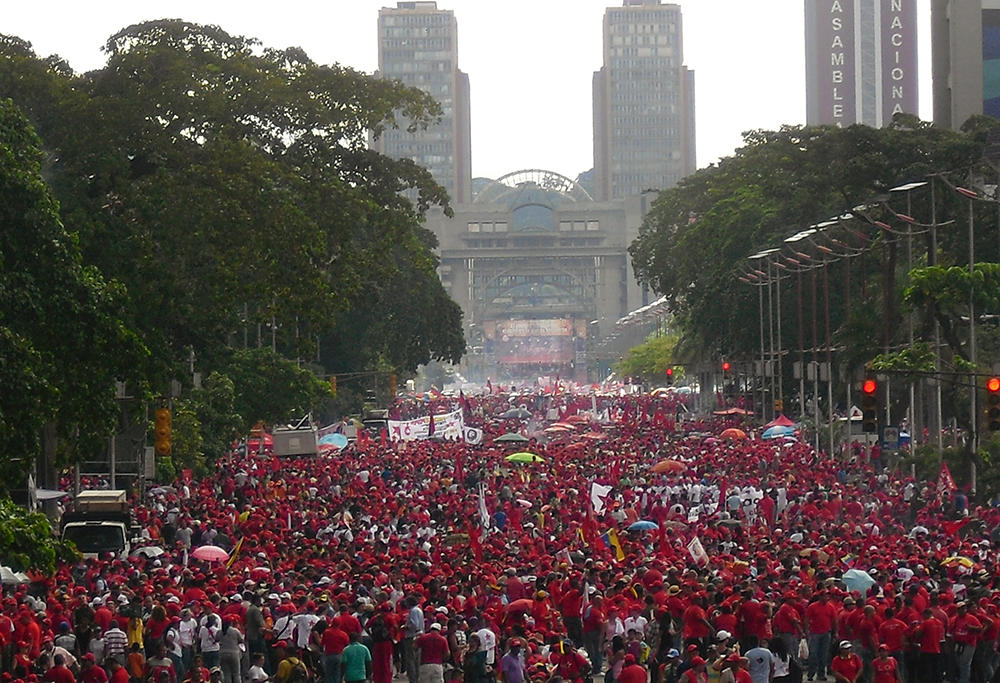Grasrotpolitikk og olje i Chávez' Venezuela
Førsteamanuensis Iselin Åsedotter Strønen sin monografi "Grassroots Politics and Oil Culture. The Revolutionary Petro-State" er en etnografisk studie av forholdet mellom grasrotbevegelser og den venezuelanske staten under Hugo Chávez' regjeringstid i lys av landets historiske utvikling som oljestat.

Main content
Grasrotaktivisme i oljestaten
"Grassroots Politics and Oil Culture" tar for seg Venezuelas mest markante politiske og sosiale prosesser under Hugo Chávez' styre. Basert på Strønens over 10 års lange forskning i landet bidrar den også med et kritisk blikk på Venezuelas historiske utvikling som oljestat.
Om boken
Skrevet om boken fra utgiver Springer.com:
"This book presents an ethnographic study of how grassroots activism in Venezuela during the Chávez presidency can be understood in relation to the country's history as a petro-state. Taking the contested relationship between the popular sectors and the Venezuelan state as a point of departure, Iselin Åsedotter Strønen explores how notions such as class, race, state, bureaucracy, popular politics, capitalism, neoliberalism, consumption, oil wealth, and corruption gained salience in the Bolivarian process.
A central argument is that the Bolivarian process was an attempt to challenge the practices, ideas, and values inherited from Venezuela's historical development as an oil-producing state. Drawing on rich ethnographic material from Caracas' shantytowns, state institutions, as well as everyday life and public culture, Strønen explores the complexities and challenges in fostering deep social and political change."
Innholdsoversikt
Hovedkapitler
- Introduction
- A History Written with Oil
- Understanding the Bolivarian Revolution from Below
- The Politics of Space, Race and Class
- Contested Community Politics
- The State as a Battlefield
- Negotiating the Popular and the State
- Moralities, Money and Extractive Capitalism
- Collective Consumption and the Wealthy Nation-State
- Corruption and the Extractive State
- Final Reflections: Understanding the “Revolutionary Petro-State”

